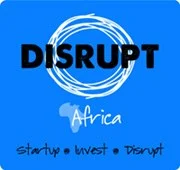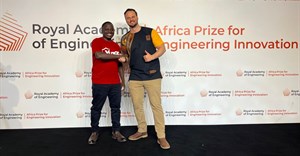Thomson Reuters wants to partner with “vibrant” African innovators

Disrupt Africa reported in October Thomson Reuters opened its first African innovation lab in Cape Town, aiming to support and partner with local technology and content driven startups and universities.
Thomson Reuters – which also ran an African startup challenge last year – hopes to co-create new technologies and business models together with startups, customers, and local universities through the Labs initiative, fuelling economic growth in various ways.
Saidah Nash Carter, senior vice president for innovation in Africa at Thomson Reuters, told Disrupt Africa the goal was to jumpstart as many new products and services that meet the unique needs of the company’s African customer base as possible.
While the primary focus right now is on Cape Town and creating value for Thomson Reuters customers there, she said it was also looking at ways to partner with the “vibrant innovation hotspots” in Nairobi and Lagos.
“I spend a lot of time on planes and coordinating with our colleagues on the ground in both Lagos and Nairobi, in order to ensure that we pursue opportunities that will be relevant across borders and scale,” Carter said.
The Cape Town lab is a way for Thomson Reuters to rapidly prototype and de-risk new ideas.
“We use all of the proven methodologies like Lean Startup and Design Thinking to put the customer at the centre of our approach and to quickly iterate on ideas,” Carter said.
“We are running co-creation led programmes with customers, startups and other innovation ecosystem players.”
Thomson Reuters Labs focuses on programmes in transformational technology, specifically innovation clusters within the fintech, regtech and legaltech markets. The company is actively seeking partnership opportunities with startups in areas such as artificial intelligence and machine learning, cognitive computing, cryptocurrency, distributed ledgers, big data, social sentiment, advanced analytics, machine readable news, and automated data collection and analysis.
One key example Carter gave is a project called Bankable Farmer, which creates credit risk profiles for smallholder farmers through partnerships with farming cooperatives, banks, non-governmental organisations and mobile startups.
“Our goal is to try and inject more information into the lending process – giving banks the information they need through non-traditional means to be able to have confidence to make loans to farmers that are creditworthy but don’t have a traditional credit profile,” she said.
The overall goal is to innovate at the intersection of where Thomson Reuters has domain expertise, and where Africa has a need, in areas such as land administration, risk mitigation, agribusiness and supply chain, and financial inclusion.
Cape Town may be the base, but Carter is clear Thomson Reuters is looking beyond just one city.
“Cape Town has an extremely vibrant startup and VC ecosystem. In addition, a number of our largest and most strategic customers have decided to open innovation labs and incubators in Cape Town. In part, we followed our customers. Also, our headquarters for our Africa business is in Johannesburg, a short two-hour flight away,” she said.
“We have a pan-African, sub-Saharan Africa focus, with a distinct focus on the primary markets of Nigeria, Ghana, Kenya, Rwanda and South Africa.”
Carter sees both massive opportunities and significant challenges on the continent, with the main opportunities lying in mobile tech and the ability to build business and government infrastructure from the ground up using new technologies like blockchain and AI.
“I also see the African entrepreneurial spirit as perhaps the biggest opportunity for growth across all sectors,” she said. “The biggest challenges I see are unemployment and a general lack of transparency and access where it matters.”
Source: Disrupt Africa

Disrupt Africa is a one-stop-shop for all news, information and commentary pertaining to the continent’s tech startup – and investment – ecosystem. With journalists roaming the continent to find, meet, and interview the most innovative and disruptive tech startups, Disrupt Africa is a true showcase of Africa’s most promising businesses and business ideas.
Our readers can keep up-to-date with the quirky world of tech hubs and accelerator programmes; and our reporters provide live coverage of the all-important tech and entrepreneurship events across Africa.
For our startup, entrepreneur, and investor friends alike, our mission is to provide practical information and advice from across Africa’s varied vibrant markets, and to promote engaged and thought-provoking discussion about the exciting ecosystem we belong to.
Go to: http://disrupt-africa.com/





















